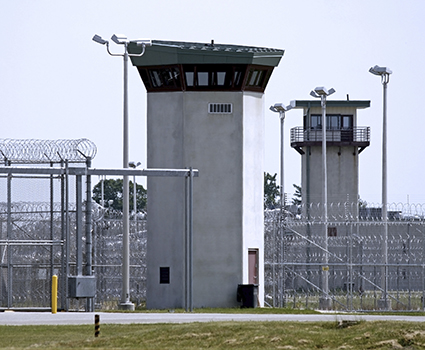Union prevails in DOC, DJJ class action grievance
Arbitrator orders health and safety protections for AFSCME members
 AFSCME members in the Department of Corrections and the Department of Juvenile Justice successfully used their union contract to enforce health and safety standards.
AFSCME members in the Department of Corrections and the Department of Juvenile Justice successfully used their union contract to enforce health and safety standards.
To address the growing incidence of assaults on employees in DOC and DJJ facilities, AFSCME Council 31 filed a class-action grievance against both departments that detailed the scope and extent of assaults on employees. The union argued that the employers’ responses have been inadequate according to both the union contract and state OSHA law.
On March 25, Arbitrator Terry Bethel issued a ruling granting the union’s grievance and affirming the gravity of the situation.
In his decision, Arbitrator Bethel indicated that both DOC and DJJ have failed in meeting the state’s responsibility to “provide a safe environment in its corrections facilities and youth centers.” He said his finding was based on “the evidence and testimony presented at the hearing, including the large number of assaults, the lack of thorough training, the failure to address certain conditions, and the testimony of the employees who were assaulted.”
“My decision,” he said, “is simply that the departments have not acted to the extent feasible to prevent injury to their security staffs.”
The arbitrator remanded the case to the parties to shape a remedy within the next 120 days that improves safety in DOC and DJJ facilities, and he retained jurisdiction over the case to ensure that a satisfactory plan of action is developed.
Long time coming
The decision is “long overdue” said AFSCME Local 1866 President Ralph Portwood.
“This has been ongoing and now we have documentation to back up what we’ve been saying all along. And it has teeth to it. The arbitrator still has jurisdiction so we can bring it back to him if they’re not adhering to the decision.”
The case was built systematically with dozens of grievances at facilities across the state involving everything from staff assaults to inadequate equipment and training.
“All these grievances we’ve been writing and labor-management meetings we’ve been having, they all came together in this case,” Portwood said. “Now they have to listen to our concerns and address them.”
“There’s a feeling of optimism,” Local 2073 President Shaun Dawson said. “Finally having an outside entity say there is a problem justifies the issues we’ve been bringing up for more than four years. Our safety concerns aren’t a random complaint. There is a true and legitimate problem.”
Bearing witness
Over eight days of hearings, the union’s claims were powerfully bolstered by AFSCME members who came from across the state to describe growing dangers in the prison system and, in some instances, assaults committed against them.
“The danger that management has ignored is outlandish,” said Local 416 Vice President Ashley Landrus, a juvenile justice specialist at Illinois Youth Center in St. Charles who testified in the hearings.
“The issues that the arbitrator heard, the stories from staff, were the very evidence we’ve brought to management. They acknowledge it but they didn’t care to have a hand in fixing it.”
“Working in the environment that we do you have to expect an element of violence, but you shouldn’t get used to it and that’s what we’ve had to do,” said Dawson. “It doesn’t have the shock value it did. We need to get back to ‘oh my god, I can’t believe that happened.’”
During the arbitration, DJJ and DOC blamed problems on staff instead of taking any ownership of the situation.
“It was tough to sit through that,” Dawson said. “They tried to decrease the numbers when they reported them and modify the definition of assault so there would be fewer. They wanted to present a false reality that things aren’t that bad. But we had the bodies in front of them to testify to the conditions employees are exposed to on a daily basis, and the arbitrator saw the truth.”
Change for the better
The arbitrator’s decision mandated that the departments must work with union representatives to find solutions to the problems plaguing both staff and inmates.
“Moving forward we’re going to be able to create a dialogue, hearing from both sides,” Portwood said.
“For the first time in a long time, we feel like things are going to get better,” Dawson said. “Now management must work with us to find the solutions.”
“This whole process has taken such a long time,” Landrus said. “We’ve held press conferences, issued reports, rallied at our workplaces and lobbied legislators. I’m ecstatic that something positive has come out of all our hard work.”
“Our success in this case is going to change the way business is conducted in the departments,” Portwood said, “and it shows our younger members why we do what we do as a union.”
“One of our members suffers terribly from PTSD from being severely beaten, and she cried when she heard the news,” Dawson said. “The level of importance that this arbitration has to our members, the ones that have been hurt and seen people they work with every day get hurt, it’s groundbreaking. We received vindication in this arbitration.”